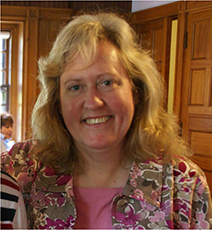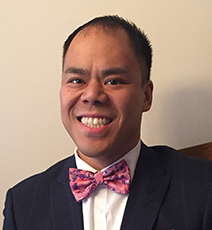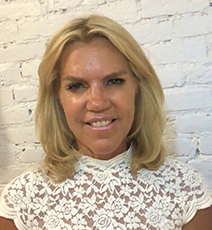Breakout Session, 1:00 - 2:00 pm
The Key Components to a Successful Employment Model
Session Overview
Employment NOW is an innovative Internship model assisting people who are visually impaired gain full-time competitive employment. Through a series of thoughtful and competitive intake and referral, benefit counseling, and assessment of ability to work full-time, potential interns are selected to work either at MEEI through the Polus Center or Cambridge Health Alliance through The Carroll Center for the Blind.
Objectives
After attending this session, participants will be able to:
- Put into practice a successful internship model to provide work experience to people with vision loss leading to full-time employment.
- Identify 3-5 soft and hard skills required for successful transition to employment.
- Connect job seekers with experts to assist them in getting off benefits and be gainfully employed through internship models.
Presenters
 Marianne Gilmore
Marianne Gilmore
Workforce Development Specialist, Carroll Center for the Blind
Marianne supervises all the vocational programs, including Employment Now Initiative. This Project Leadership includes assisting people to obtain and maintain competitive work, internships, and volunteer jobs that will lead them towards independence. She works closely with the Business Liaison at the Cambridge Health Alliance, host of ENI, employers of many different sectors, community service providers, state agencies, and other collaborations like Work Without Limits. Working with sector industries in Massachusetts and other states affords opportunities for all our job seekers. Marianne believes most strongly in employment for all.
 Theresa E. Kane, Ph.D
Theresa E. Kane, Ph.D
Executive Director, U.S. Programs, Polus Center for Social and Economic Development, Inc.
Theresa E. Kane, Ph.D., is the Executive Director for U.S. Programs at the Polus Center for Social and Economic Development, Inc., a 501(c)3 non-profit organization whose mission is to support people with disabilities and other vulnerable groups in Massachusetts and around the world. Polus has been working with the MA Commission for the Blind since 2015, providing internships and employment supports for adult job seekers and pre-employment transition services for youth and young adults with visual impairments. Theresa spent more than ten years as a manager and OD consultant in a large multinational before founding the Academy of Professional Skills Development, a multinational corporate training and consulting firm. After serving as consultant and board member for the Polus Center for many years, Theresa joined the senior leadership team in 2005. She holds Ph.D. and Masters' degrees in Human & Organizational Systems from Fielding Institute, Masters' and Bachelors' degrees in Organization Behavior from Lesley University, and a Certificate in Non-Profit Administration from Suffolk University.
 Joe Buizon
Joe Buizon
Employment Services Specialist, Massachusetts Commission for the Blind
Joe Buizon is the Employment Services Specialist for the Massachusetts Commission for the Blind (MCB). He holds an undergraduate degree in Social Work from Bridgewater State and a Masters in Vocational Rehabilitation Counseling from UMass Boston. Joe has worked at MCB for 14 years in varying roles including rehabilitation teacher, social worker, employment services specialist and now as the supervisor for that team. Prior to his long tenure at MCB, Joe held positions in Speech Pathology at Mass General Hospital and as a Residential Counselor at the Carroll Center for the Blind. He is a lifelong Massachusetts resident of Somerville where he currently lives with his wife and two elementary school aged sons.
 Jenifer Whitmore
Jenifer Whitmore
Program Director, Employment Now Initiative, Polus Center for Social and Economic Development, Inc.
Jenifer provides leadership and management of the Employment Now Initiative professional workforce development program at Mass Eye and Ear Hospital (MEEI). Jen teaches transferable job skills, technology skills and communication skills to program participants barred traditional access to work due to visual impairments and comorbid hurdles. She specifically provides individual mentoring, job development, job coaching and technology training. Jen manages a caseload of program candidates and communicates with their support teams including vocational rehabilitation counselors, therapeutic counselors, state agencies, housing supports and families.